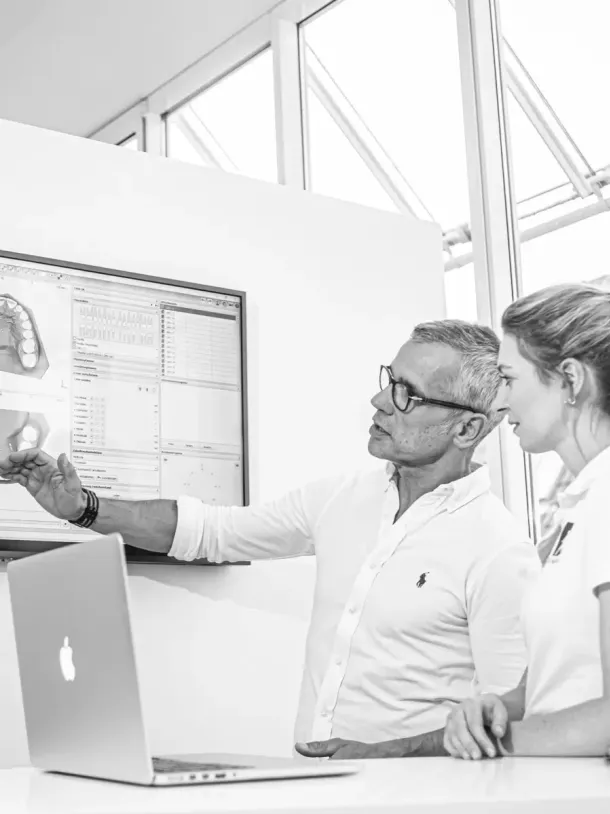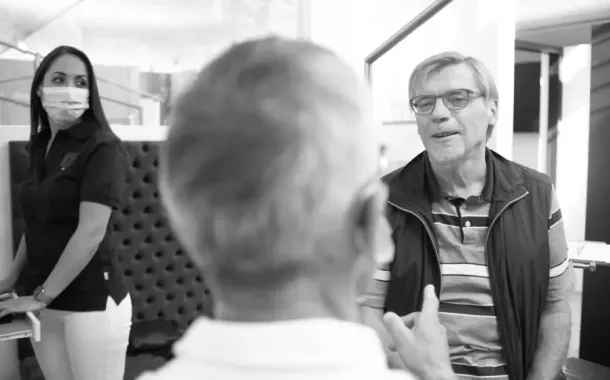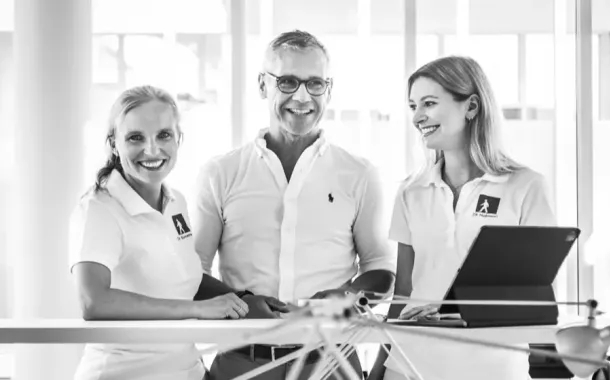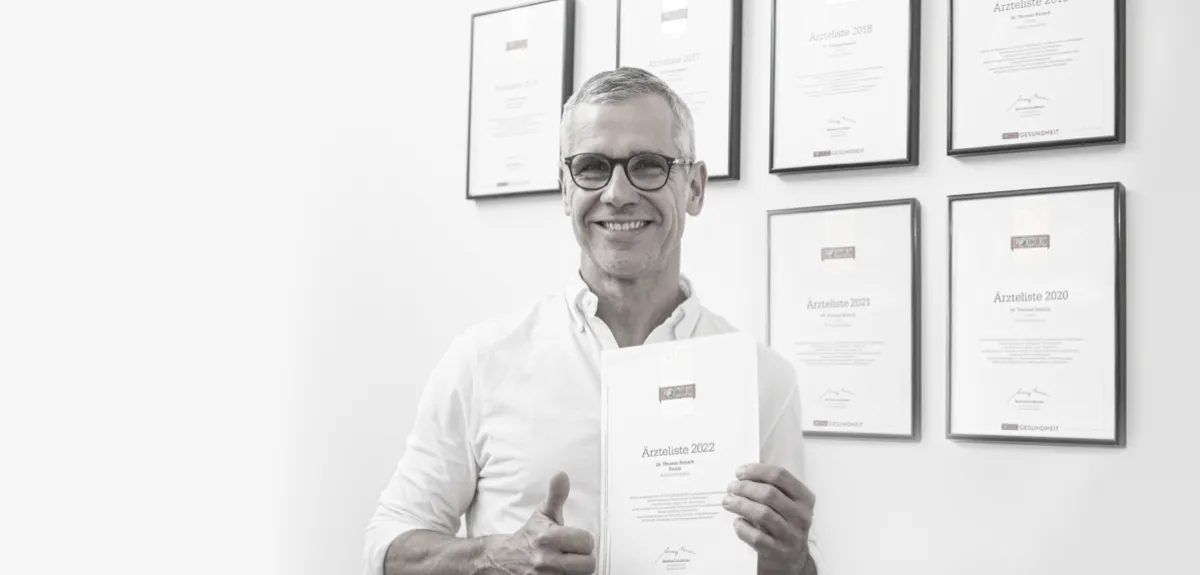
Interview
Read my interview and learn why I still enjoy orthodontics so incredibly much after more than 20 years.

As a general practitioner or specialist, such as an internist, you would also have dealt with people.
Herr Dr. Banach. You run an orthodontic practice in Königstein and a practice in Frankfurt am Main. Your practice is authorized to provide training.
What is your advice to the next generation of orthodontists?
I always wanted to work with people, have people around me, be in contact with people. If I hadn't become a doctor, I might have ended up in the communications industry. Interacting with other people is important to me. I find people interesting in their complexity, they interest me medically, but also in every other way. I think that's an advantage in our profession. My advice to young colleagues is to take an interest in the people you treat, and then you will become good doctors.


You'll have to explain that to me in more detail.
However, you did not become a dentist, but an orthodontist.
The decision to become an orthodontist came later, when I gained even more insight into the profession.
To put it in a nutshell, being a dentist would have been a beautiful thing for me. Orthodontist is my dream job.
It sounds like experience plays a big role.
It's a dream job for you to fiddle around in other people's mouths?
Dr. Banach laughs ...
For some, that would certainly be nothing. But they don't go into dentistry either. I wanted variety. Always new challenges. Above all, I wanted to work with people. And not an 0815 job, but a creative activity in which it is always necessary to solve individual problems with technical expertise, but also with experience and ingenuity. No two sets of teeth are the same. And no two treatments are exactly alike.
One can sense the enthusiasm when you talk about your profession. Aren't you surprised yourself, after all these years?
Dr. Banach smiles. Astonishment would be the wrong word. I'm happy about that, because I know it's not something that can be taken for granted. When I started, of course, I didn't know how much I would enjoy it after 20 years and more. And I do enjoy it. It is an incredibly nice feeling at the end of a treatment to see a child laughing with beautiful straight teeth. Or adults who may have been unhappy for a long time with their odd teeth that were neglected to be treated in their childhood. There is often a story behind misaligned teeth. Disappointments. Children who were teased by children. Or simply insecurity that accompanies every smile. It's a wonderful feeling to be able to straighten all that out, to be able to contribute to giving people a good piece of healthy self-confidence along the way. That makes me happy.

Dr. Banach, thank you for this interview.